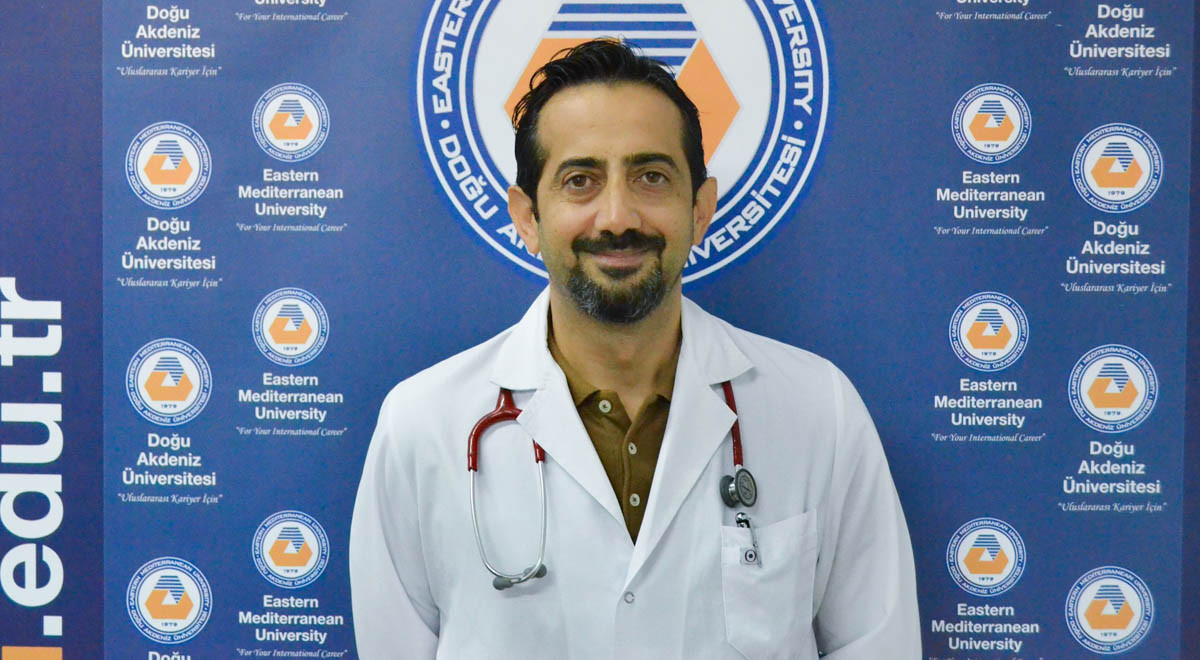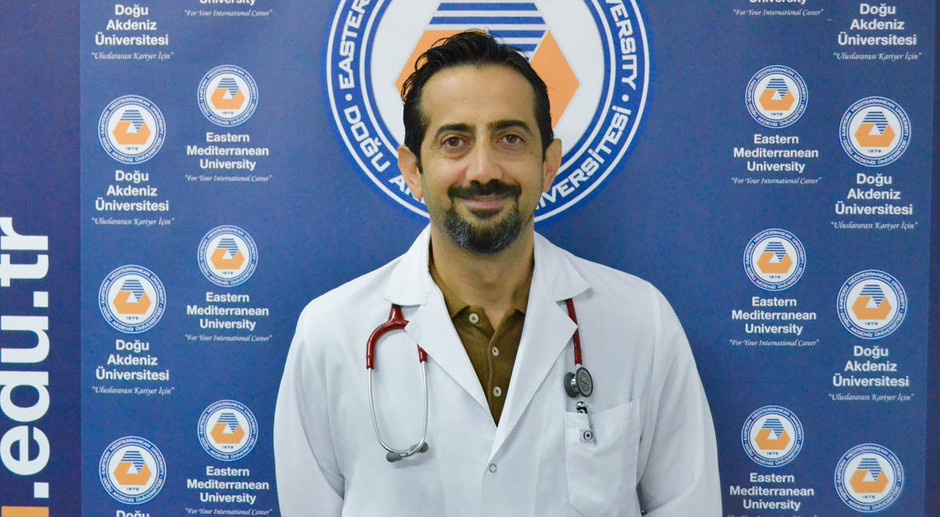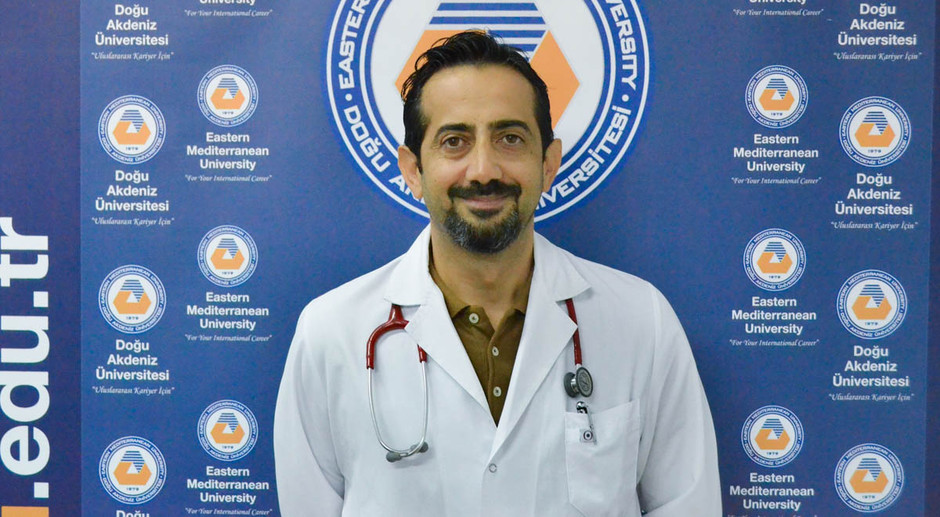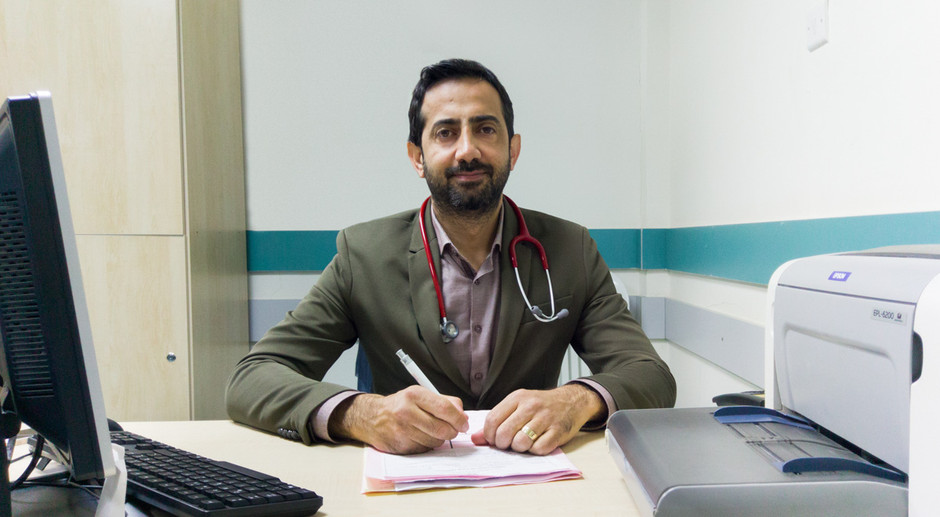Eastern Mediterranean University Dr. Fazıl Küçük Medicine Faculty academic staff member and Pediatric Health and Diseases Specialist Dr. Umut Altunç released a statement on 2 April Autism Awareness Day, which reads as follows:
“World Autism Awareness Day is an internationally recognized day on 2 April every year, encouraging member states of the United Nations to take measures to raise awareness about people with autism throughout the world. Autism is a mental condition, present from early childhood, characterized by great difficulty in communicating and forming relationships with other people and in using language and abstract concepts.
Despite the existence of noteworthy research on the genetic structure of autism, the causes of the disorder are still unknown to us. Some state that some vaccines may be the cause but recent research has not found any evidence supporting the statement. Current research focuses on the mother’s exposure to heavy metals such as mercury and lead as the main the causes of autism.
Autistic children usually lead an ‘introvert’ life. Observed at early ages and frequently in males, the disorder may surface with completely different clinical outlook. This is called autism spectrum disorder and it is estimated globally that every year up to six children out of every 1,000 will be diagnosed as having autism spectrum disorder with light or heavy symptoms. The early symptoms of the disorder may appear before the 6th month and early diagnosis may take place with careful observation of the said symptoms. While each symptom does not have any significance on its own, multiple appearance of various symptoms should bring autism into consideration.
The only recommended treatment of autism is “Special Education” and the success of the treatment is directly proportional with early diagnosis. There are many university graduates who have been diagnosed with autism and received treatment at early stages. Delayed diagnosis of the symptoms, public anxiety, family refusal and invalid treatment methods all act as serious barriers in the integration of such individuals into society. Not only doctors or educators but also parents should be well informed symptoms of autism.
Some of the autism symptoms observed in children are as follows:
- Little interest towards environment.
- Little interest in interacting with others or responding to events.
- Preferring to be alone.
- Communication difficulties.
- Difficulties in speaking.
- Responding negatively to physical interaction with others, to hug or touch.
- Limited or no eye contact.
- Inappropriate laugh or cry
- Extreme response or no response towards sound.
- Rotating objects around them
- Insistently playing the same games.
- Preferring to have a familiar routine and getting very upset if there are changes to this routine
- Hyperactivity or no activity.
- Inappropriate attachment to objects.
- Stress and anxiety for no reason
- Irregular motor skills and activity development.(Can’t kick a ball but can pile up cubes)
- Demonstrating repetitive behavior.
- Repeating meaningless words.
- Having repetitive movements, such as flapping their hands, rocking back and forth, or flicking their fingers
- Lacking an appropriate sense of danger.
- No feeling of pain.
The A.L.A.R.M. guidelines, adapted from key policy statements of international health organisations were developed to establish standard practices among physicians, to simplify the screening process, and to ensure that all children receive routine and appropriate screenings and timely interventions. The slogan is like the summary of the disorder:
- Autism is prevalent
- Listen to parents
- Act early
- Refer
- Monitor
All health professionals, educators and parents should be well-informed about ALARM guidelines for the early diagnosis of individuals with autism and to ensure their integration into the society.




